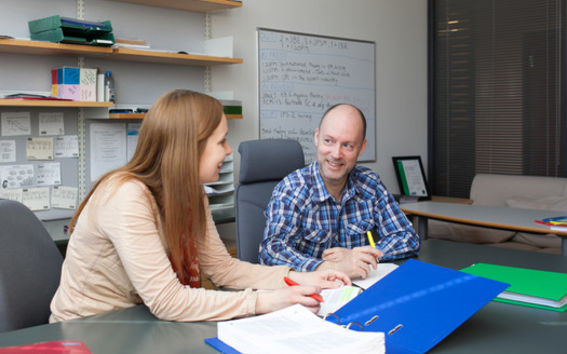Logistik

Logistik innebär planeringen, implementeringen, och kontrollen av ett kostnadseffektivt flöde av gods från råmaterial till färdiga produkter, i kombination med förvaltningen av relaterad information och service. Målet med logistik är att få rätt gods eller service till rätt plats, vid rätt tidpunkt, enligt kundens önskemål. Vår forskning baserar sig på de utmaningar som uppstår i och med ovannämnda definition, såsom ett effektivt flöde av produkter och tjänster i försörjningskedjor, utvecklingen av nya och unika affärsmodeller samt anskaffningen av industriell och offentlig service och de relaterade hållbarhetsaspekterna.
- Benchmarking Supply Networks
- Longitudinal Industrial Benchmarking
- Logistics Networks research
- Market Microstructure and Channels
- Capability-Based Strategies for Technology, Marketing and Supply Chain Management
- Service Modularity and organizations
- Business Models and E-business
- Sustainability of product and service Supply Chains
- Technology-Enabled Service Operations
Assistant Professor Max Finne: I currently research ways in which modern technologies can be used to improve the productivity, efficiency and effectiveness of service operations. For example, the finance industry has faced increasing automation of their core processes through technologies. I am fascinated of how parallel developments in a number of industries blur the boundary of service and manufacturing, which can dramatically change the ways service operations and organizations ought to be managed.
- Alternative Causes to Agency Problems in Inter-Organizational Relationships – Hidden Expectations vs. Hidden Action
Associate Professor Katri Kauppi, Academy of Finland funded 4-year research project: Principal-agent situations are cases where work is delegated, e.g. from a buyer to supplier. This research focuses on the problems that can arise in such situations, focusing on buyer-supplier relationships. An underlying assumption in agency research is opportunism: if the principal cannot monitor how the work is completed (hidden action exists), the agent will put in less effort and the principal will be unsatisfied with the results. This research challenges this assumption, arguing that unsatisfactory results in buyer-supplier relationships could instead be caused by hidden expectations: the principal has not explained in sufficient detail what they want the agent to do, thus the agent is unable to complete the task well, despite no opportunism. The goal is to investigate whether problems in buyer-supplier relationships are due to hidden expectations, rather than hidden action and find the correct governance mechanisms to these situations.
Markku Kuula
Professor, Head of the Department
Max Finne
Assistant Professor
Markku Tinnilä
Senior University Lecturer
Ari Vepsäläinen
Professor (Emeritus)
Katri Kauppi
Associate Professor
Katariina Kemppainen
Professor of Practice
Juha Eskelinen
Researcher
Sadaat Ali Yawar
Postdoctoral Researcher
Ida Isoherranen
Doctoral Candidate
Juho Pursimo
Doctoral Candidate
Weimu You
Researcher
Marta Malik
Doctoral Candidate
Tran Tri
Doctoral Candidate
Yuan Virtanen
Doctoral Candidate






